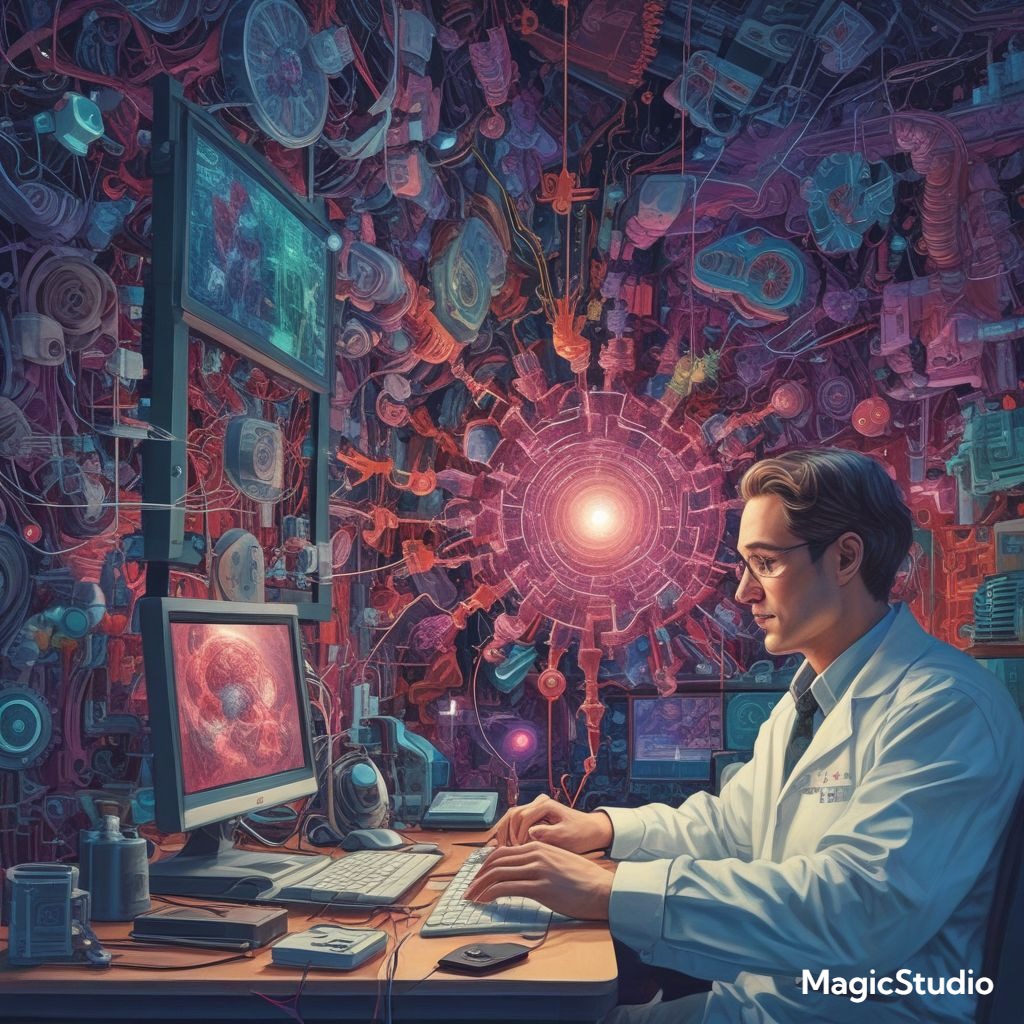AI-Powered Diagnostics: How Algorithms Are Revolutionizing Disease Detection

Artificial intelligence (AI) is reshaping the landscape of healthcare, particularly in the field of diagnostics. With the ability to process vast amounts of medical data quickly and accurately, AI-powered algorithms are transforming disease detection, leading to earlier diagnoses, improved treatment plans, and better patient outcomes.
The Role of AI in Medical Diagnostics
AI-driven diagnostic tools leverage machine learning and deep learning techniques to analyze medical images, genetic data, and patient histories. Some key applications include:
- Medical Imaging Analysis: AI is enhancing radiology by detecting anomalies in X-rays, MRIs, and CT scans with high precision, reducing human error and expediting diagnosis.
- Pathology and Histology: AI algorithms analyze tissue samples to identify cancerous cells with remarkable accuracy, improving early detection and prognosis.
- Genomic Data Interpretation: AI assists in deciphering genetic mutations that could indicate a predisposition to diseases such as cancer, Alzheimer’s, and rare genetic disorders.
- Predictive Analytics: By analyzing patient data, AI can predict potential health risks, allowing for proactive medical interventions.
Benefits of AI-Powered Diagnostics
The integration of AI in medical diagnostics offers numerous advantages:
- Early Detection and Accuracy: AI can identify subtle patterns in medical data that might be missed by human eyes, enabling early diagnosis and treatment.
- Efficiency and Speed: AI-driven tools can analyze large datasets within seconds, reducing diagnostic turnaround times.
- Reduced Workload for Healthcare Professionals: AI assists doctors by automating routine diagnostic tasks, allowing them to focus on complex cases.
- Personalized Treatment Plans: AI tailors treatment recommendations based on a patient’s unique medical history and genetic profile.
Challenges and Ethical Considerations
Despite its potential, AI-powered diagnostics face several challenges:
- Data Privacy and Security: Ensuring patient data protection and compliance with healthcare regulations is critical.
- Bias in AI Models: AI algorithms must be trained on diverse datasets to avoid biases that could impact diagnostic accuracy.
- Regulatory Approvals: AI-powered diagnostic tools must meet stringent medical regulations before they can be widely adopted.
- Human Oversight: While AI enhances diagnostics, human expertise remains essential in validating AI-generated results and making final clinical decisions.
The Future of AI in Disease Detection
As AI continues to evolve, its impact on disease detection will only grow stronger. Future advancements may include:
- AI-Powered Wearable Devices: Smart sensors and wearables could continuously monitor vital signs and detect early warning signals of diseases.
- Integration with Telemedicine: AI-driven diagnostics can enhance virtual consultations, providing real-time insights to healthcare providers.
- Self-Diagnosis Tools: AI-based applications may empower individuals to perform preliminary health assessments before consulting a doctor.
AI-powered diagnostics are revolutionizing disease detection, paving the way for a more efficient, accurate, and accessible healthcare system. As technology advances, collaboration between AI and medical professionals will be key to ensuring its ethical and effective implementation.